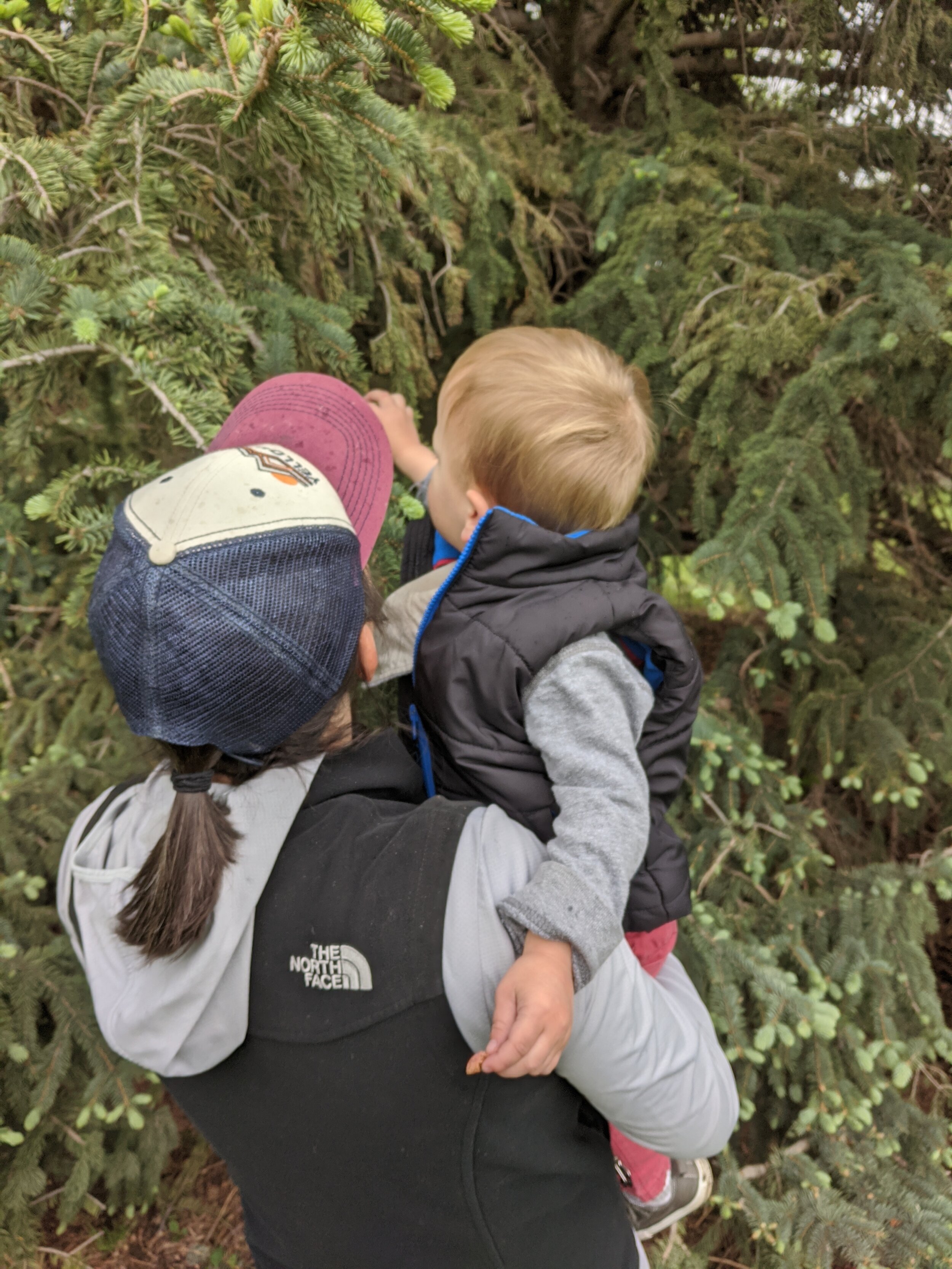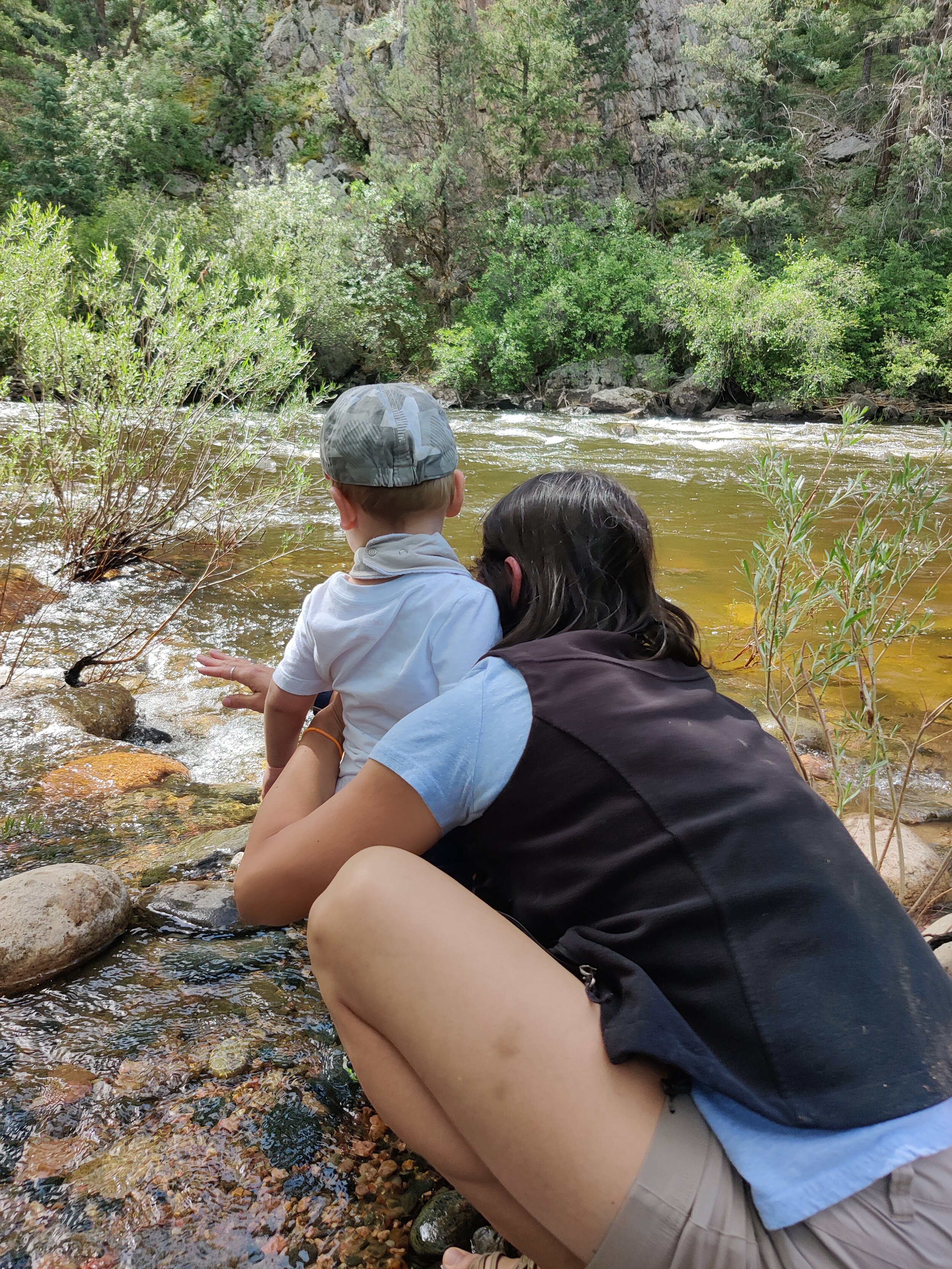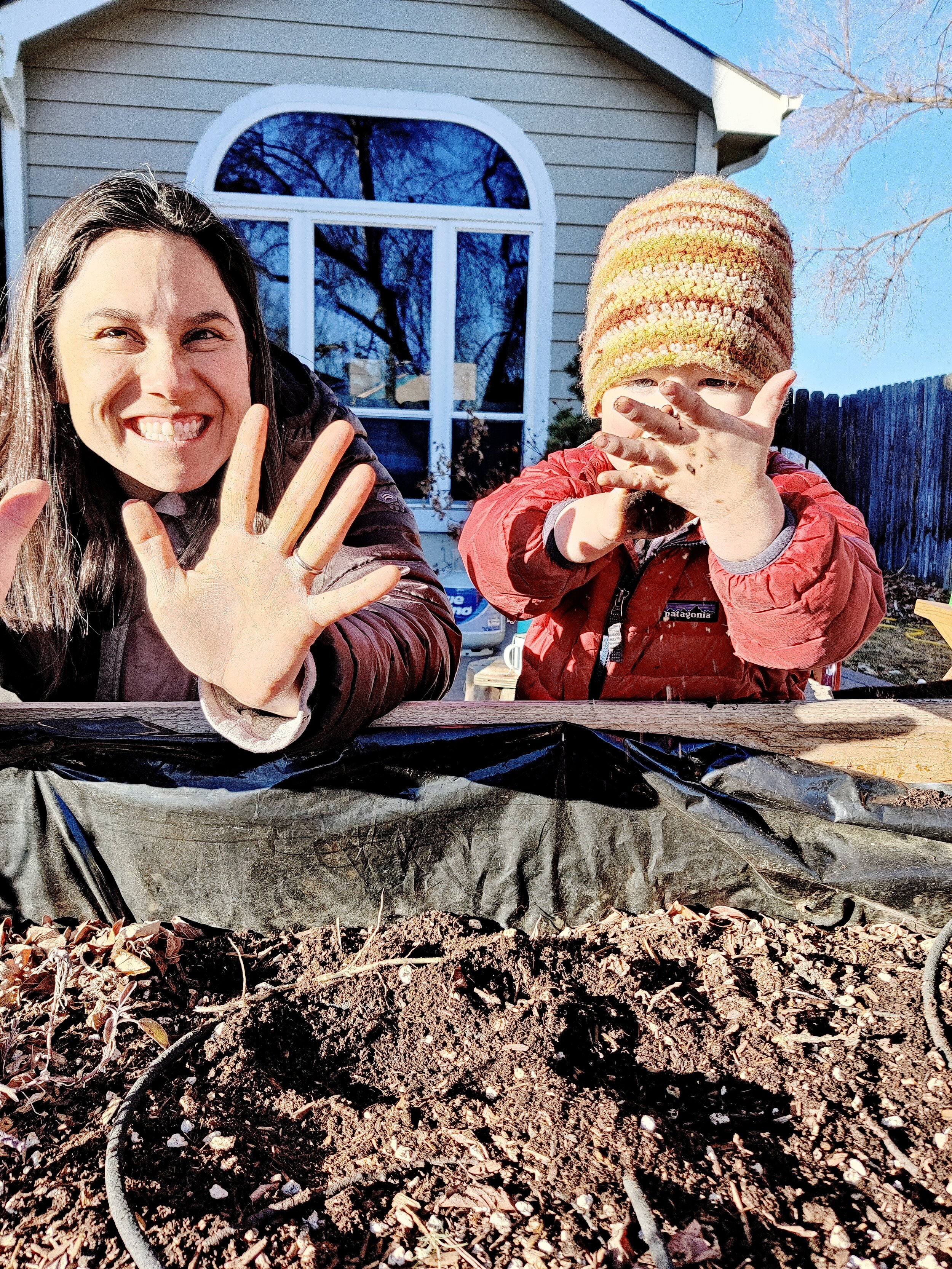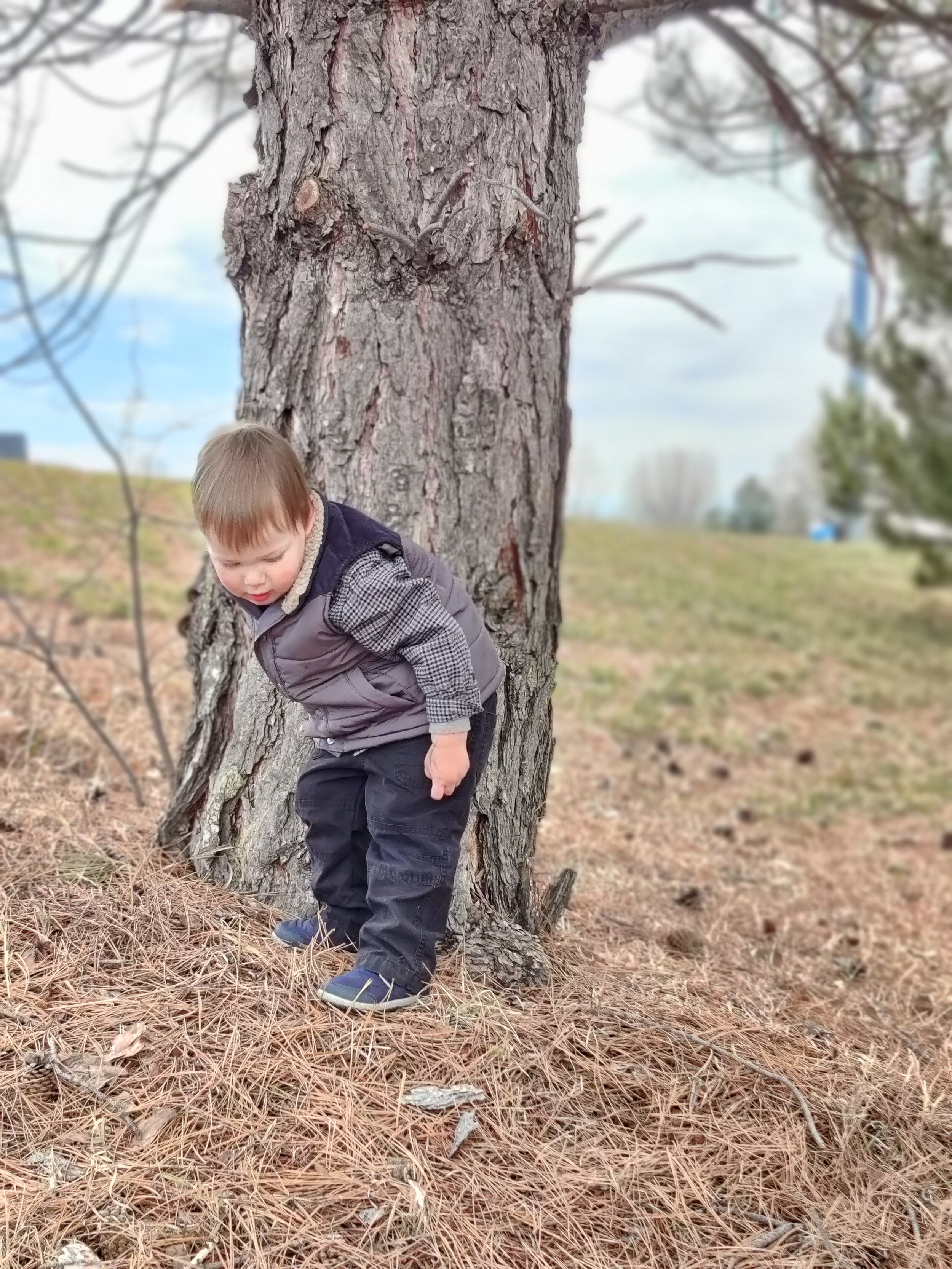My Journey With Nature-Based Learning
Throughout my journey of opening Little Pines Nature-Based Preschool I participated in several environmental education & nature-based learning courses, conferences, and certification programs, it was a wonderful chapter of learning and deepening my connection to nature.
As I learned more and spent more time observing the natural environment around me, I began to see the many ways that nature can be the most powerful teacher. As I observed a strong wind blowing through a tree or a blade of native grass, I began to see an example of resilience and the normalization of struggle. As my understanding of insect and plant lifecycles increased, so did my understanding of the hardships for all living beings and our interconnectedness. I realized that nature, when we choose to slow down and observe it, has the capacity to teach us some of the most important lessons in life. Lessons like working hard to grow and achieve goals despite the challenges faced, accepting change as part of life, and recognizing the interconnectedness of all life.
The more I learned the more I witnessed my own capacity for empathy, compassion, understanding, and gratitude. As these positive qualities strengthen in me, because of time in nature, I became even more passionate about Nature-based education. I could see the power of learning in this way, and I could imagine what the next generation of leaders could achieve if part of their education included cultivating a deep sense of empathy, care, compassion, and value for all living things. When a child learns to be gentle in exploring a plant and learns to ask permission before picking up an insect, they naturally learn to have a deep respect for all life, and a deep respect for self. I get giddy thinking about how different our world would be if all children grew up learning to ask permission of an insect or flower before touching it. If education effectively instilled a respect for the smallest of life how differently would the next generation treat one another across cultural, socio-economic, and racial divides?
Time spent in nature also cultivates a curiosity to understand. When children spend time observing the behavior of a bird or insect they learn to ask “I wonder” questions. This propensity to wonder, to be curious, is transferable to every avenue of life, which I believe will serve students well in our rapidly changing world.
I used to see Nature-based education as a wonderful way to get children outside, in a great setting, to lead sensory rich learning experiences. I now know it is so much more. Nature-based education is equal parts learning about how to protect our environment, social emotional learning, academic readiness, and social justice work. I have come to see learning in this way as essential work to creating the future I want to see. A future where leaders lead with compassion and a desire to understand first versus a desire to be understood. A future where there are less mental health challenges because there are more people slowing down to be present in their day to day lives knowing that life happens in cycles, chapters and seasons and that challenges are a natural part of life. A future where there is greater happiness because there are more people courageously forging new paths. A future where there are less divides because there are more individuals focused on doing right, by all people and our planet.
In one of my courses, an instructor shared her firsthand experience working with her students. She shared that most of her students, at the beginning of their time together, would share their appreciation for nature because of what nature could do for them. For instance, an appreciation of trees because of the shade it provides in the summer. She went on to say that this appreciation would shift over time as children’s experience with nature deepened. Children would begin to share their appreciation for trees because of the shelter and food it provides for animals. In hearing this instructor’s experience, I took a moment to pause and process the bigger learning. She was depicting a transformation in her students. A shift from focusing on self, the typical way of thinking, “what can I get out of this experience,” to a focus on others, valuing interconnectedness and fluency in recognizing the needs of others. This was a profound and inspiring moment for me. For me, this sums up the value of Nature-based education. In Nature-Based Education children receive the best of developmentally appropriate practices while also developing a deep connection with nature to spark a lifetime of courage and curiosity.




